Marvin Gaye – What’s Going On
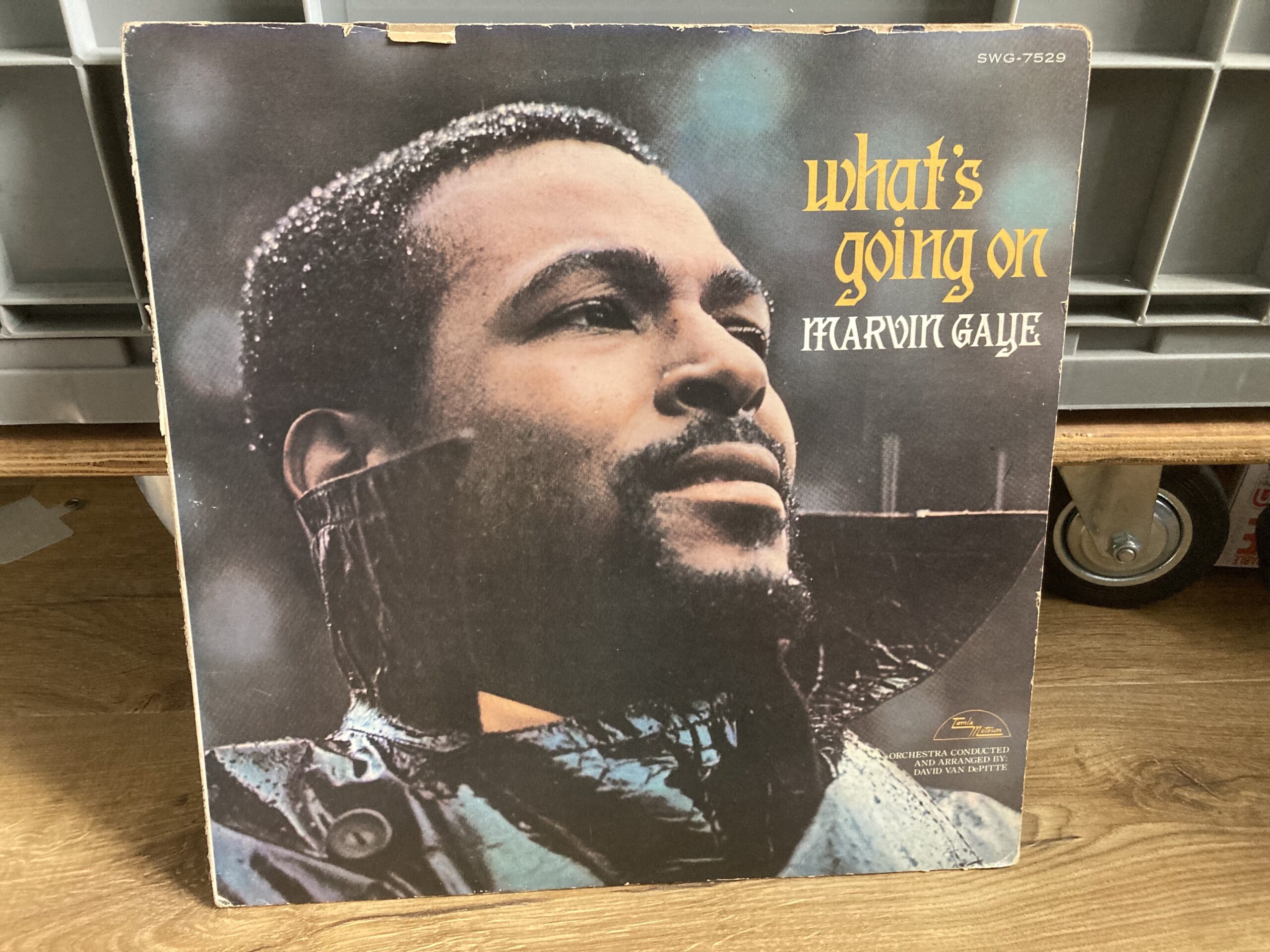
Marvin Gaye’s “What’s Going On” is a timeless classic that has remained relevant through the years. Released in 1971, it was a socially conscious and introspective album that reflected the turbulent times of the era. As a vinyl enthusiast, I have a particular attachment to this album and its sound, especially the bassline from James Jamerson.
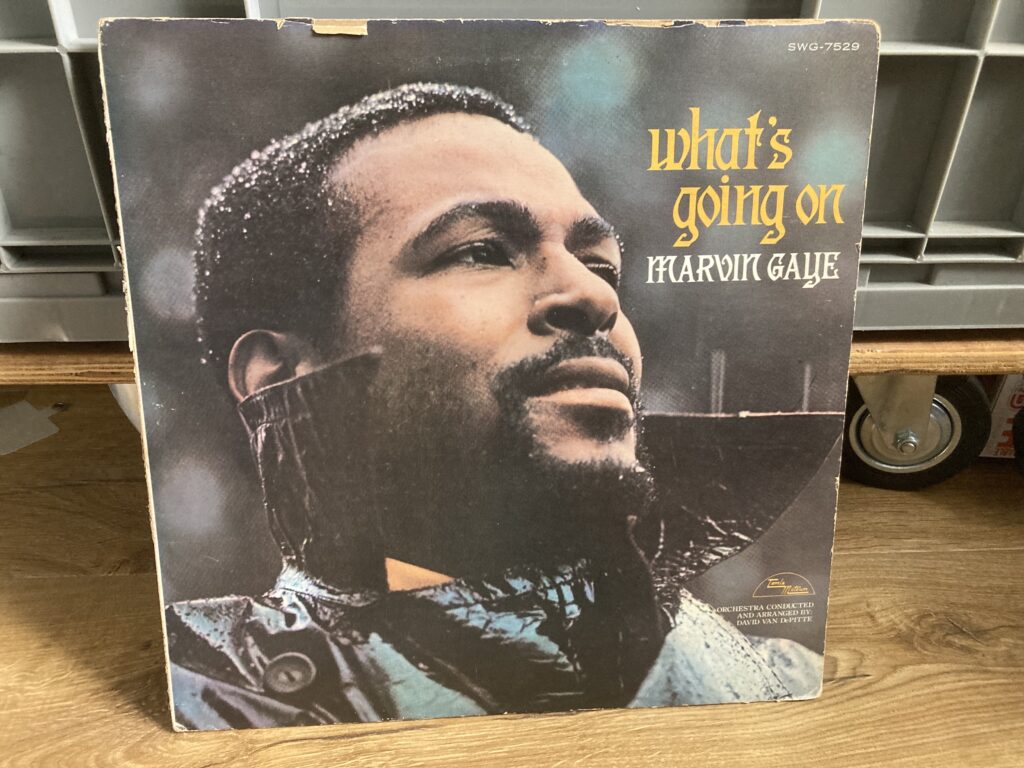
Marvin Gaye was an American singer-songwriter, record producer, and instrumentalist who was born on April 2, 1939, in Washington, D.C. He was one of the most significant figures in the Motown Records music label, and his work helped to shape the sound of soul music during the 1960s and 1970s. Gaye’s early career began with singing doo-wop as part of the Moonglows before transitioning to a solo career.
Gaye’s music was known for its melodic sensibility and its ability to address important social issues. His songs, such as “What’s Going On,” “Mercy Mercy Me,” and “Inner City Blues,” spoke to the struggles of urban life and the political upheavals of the era. His work was critically acclaimed, earning him numerous awards and accolades, including induction into the Rock and Roll Hall of Fame.
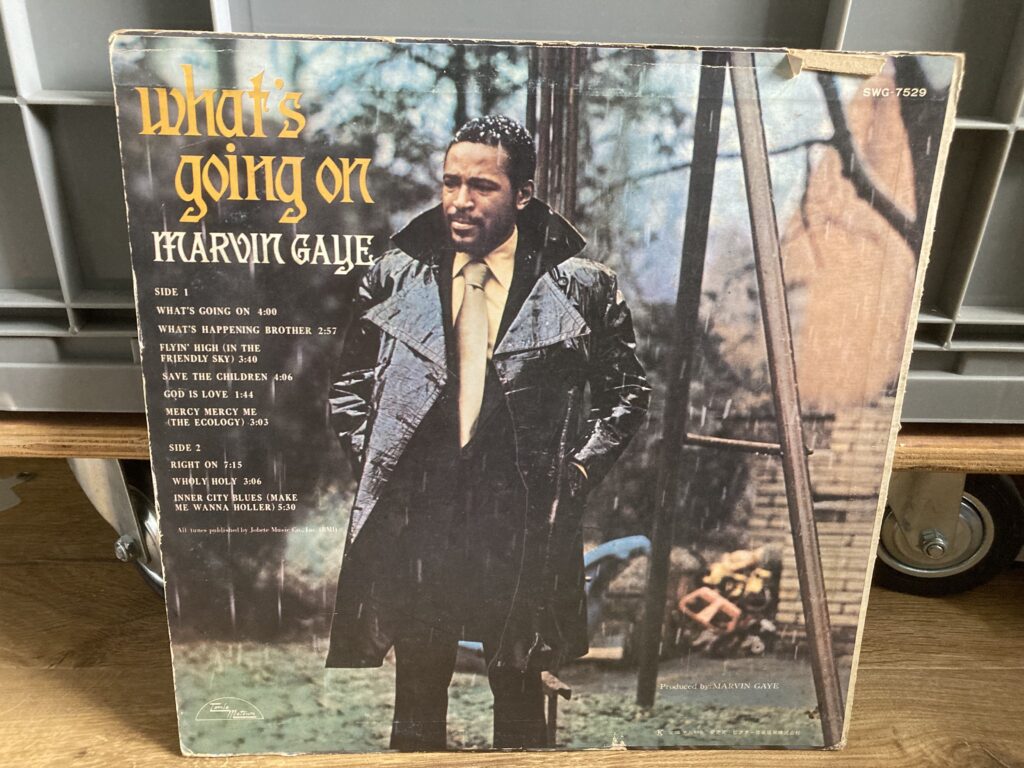
James Jamerson was an American bassist born in Edisto Island, South Carolina, on January 29, 1936. He is regarded as one of the most influential bass players in popular music history. Jamerson was a member of the Funk Brothers, a group of Detroit-based session musicians who played on many Motown recordings during the 1960s and 1970s. He played on over 30 number-one hits, including Marvin Gaye’s “What’s Going On,” the Temptations’ “My Girl,” and Stevie Wonder’s “For Once in My Life.”
Jamerson’s playing style was characterized by his use of syncopated rhythms and his ability to create complex basslines that complemented the melodies of the songs. He was known for his use of a Fender Precision Bass and his preference for playing with the flatwound strings.
Marvin’s vocals on this record are incredible. His voice is smooth, soulful, and emotive, and he delivers each lyric with conviction and passion. The lyrics of the songs are thought-provoking, and they address important social issues, such as war, poverty, and racism.
Another reason that I love this record is the bassline from James Jamerson. His playing is melodic, groovy, and masterful, and it perfectly complements the vocal melodies of the songs. The bassline on “What’s Going On” is particularly outstanding, with its intricate rhythms and soulful groove.
The arrangements are lush and soulful, with a mix of horns, strings, and percussion that create a warm and inviting atmosphere. The songs flow seamlessly from one to the next, creating a cohesive listening experience that is both emotionally impactful and musically satisfying.
About My Japanese Press
My Japanese version of Marvin Gaye’s “What’s Going On” album is highly sought after by vinyl collectors due to its superior sound quality and unique packaging. Victor, the Japanese manufacturer of the album, was known for their attention to detail and high-quality pressings.
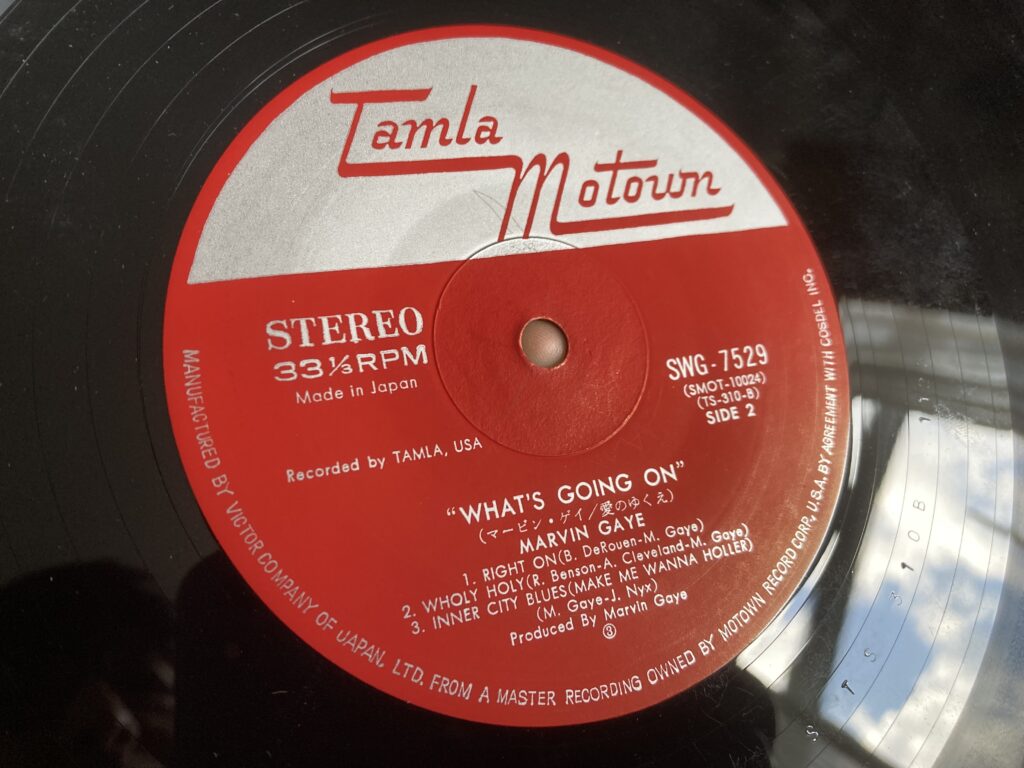
Victor Company of Japan, Ltd. (JVC) was one of the major manufacturers of vinyl records during the 1970s. JVC had a reputation for producing high-quality records that were well-regarded by audiophiles and collectors alike.
JVC began producing vinyl records in the early 1950s and quickly gained a reputation for their high-quality pressings. In the 1960s and 1970s, JVC became one of the largest manufacturers of vinyl records in Japan, producing records for their own Victor label as well as for other labels such as CBS/Sony and RCA.
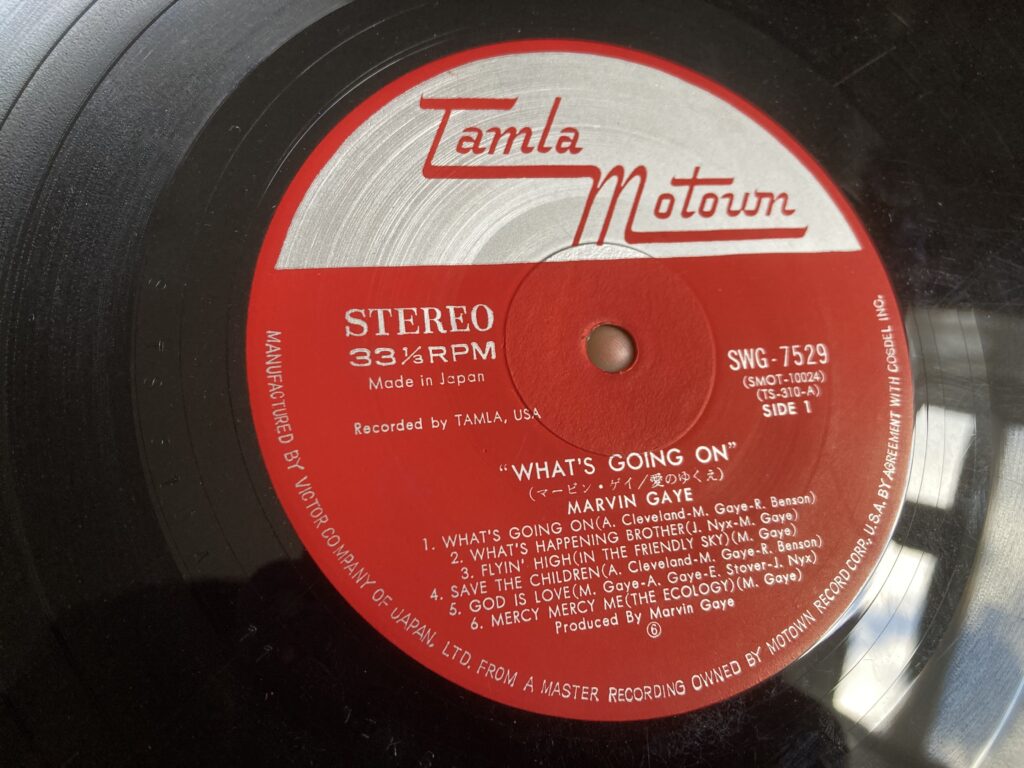
JVC’s vinyl records were known for their excellent sound quality, which was achieved through a combination of high-quality vinyl, meticulous mastering, and advanced pressing techniques. JVC’s vinyl records were pressed on virgin vinyl, which was of a higher quality than the recycled vinyl used by some other manufacturers. JVC’s mastering process was also highly regarded, with engineers paying close attention to the sound quality of each recording to ensure that the final product sounded as good as possible. Finally, JVC’s pressing techniques, which included the use of precision molds and advanced quality control processes, resulted in records that were consistently free of defects such as surface noise and distortion.
JVC’s attention to detail and commitment to quality made their records highly sought after by audiophiles and collectors. JVC’s records were often more expensive than those produced by other manufacturers, but many collectors felt that the extra expense was worth it for the superior sound quality and overall build quality of the records.
Therefore, if you got a chance, grab a Japanese version to see if it sounds better than your western made one. I’m currently looking for an MIE version for making a comparison 😀



Recent Comments